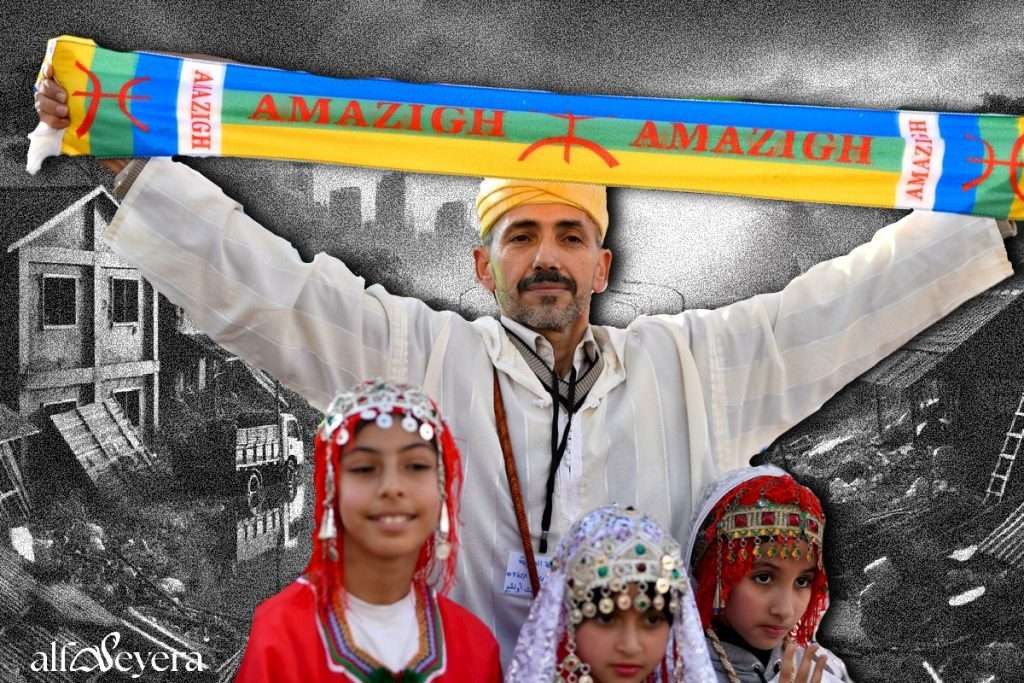Amazighs celebrate new year in flooding and earthquake aftermath

Image by: Alfaseyera Ltd
On January 14th, Morocco officially marked the second annual celebration of the Amazigh new year, Yennayer.
The New Arab reports the festivities were sadly overshadowed by recent flooding in Amazigh villages, as well as the tragedy of the 2023 earthquake in the same region.
“Let’s begin with a minute of silence for our brothers and sisters in Tata and the Atlas”, said Amazigh activist, Adil Adaskou addressing a crowd gathered outside Moroccan parliament in Tamazight.
In 2024, the year 2974 in the Amazigh calendar, floods devasted parts of southeastern Morocco, causing damage to Tata, an oasis region that is still mostly rural and underdeveloped, these floods killed at least 19 people.
For Imazighen, Yennayer is not just a celebration but an assertion of identity and resilience, as they face marginalising state policy.
For over ten years, Imazighen gathered each year outside of Morocco’s parliament, which they see as a symbol of their marginalisation.
They drum, wave flags, sing traditional songs, and eat Tagoula, a traditional dish made with barley and butter.
Historians may remain divided regarding the origins of the celebration, but they all agree that Yennayer is a celebration of the land, identity, and community.
Yennayer has historically been a moment of cultural affirmation, going back centuries.
Yennayer was first officially recognised as a national holiday in 2023, assigning legitimacy to what was previously a grassroots celebration.
Many younger Moroccans are not as familiar with the tradition. Before 2023 Amazigh traditions and celebrations were largely absent from schools and public institutions.
Reflecting this, less than 19% of people in Morocco are fluent in Tamazight, said the general population and housing census collected in 2024 (RGPH).
Morocco’s census does not currently collect any data on ethnic demographics, including the number of Imazighen people. Despite this, Amazigh associations estimate that around 85 percent of Moroccans are Imazighen.
Activists argue that the Amazigh identity continues to be marginalised.
“They showcase our traditions at festivals but ignore deeper issues–economic inequality, environmental degradation, and political representation, “said Abdallah Bouchtat, an activist.
The New Arab
Want to chase the pulse of North Africa?
Subscribe to receive our FREE weekly PDF magazine














